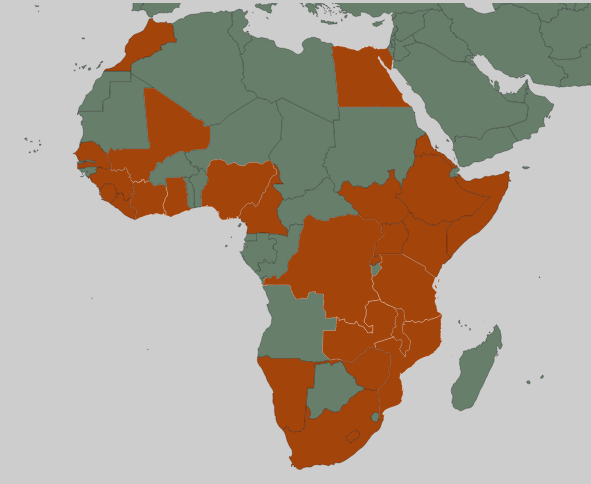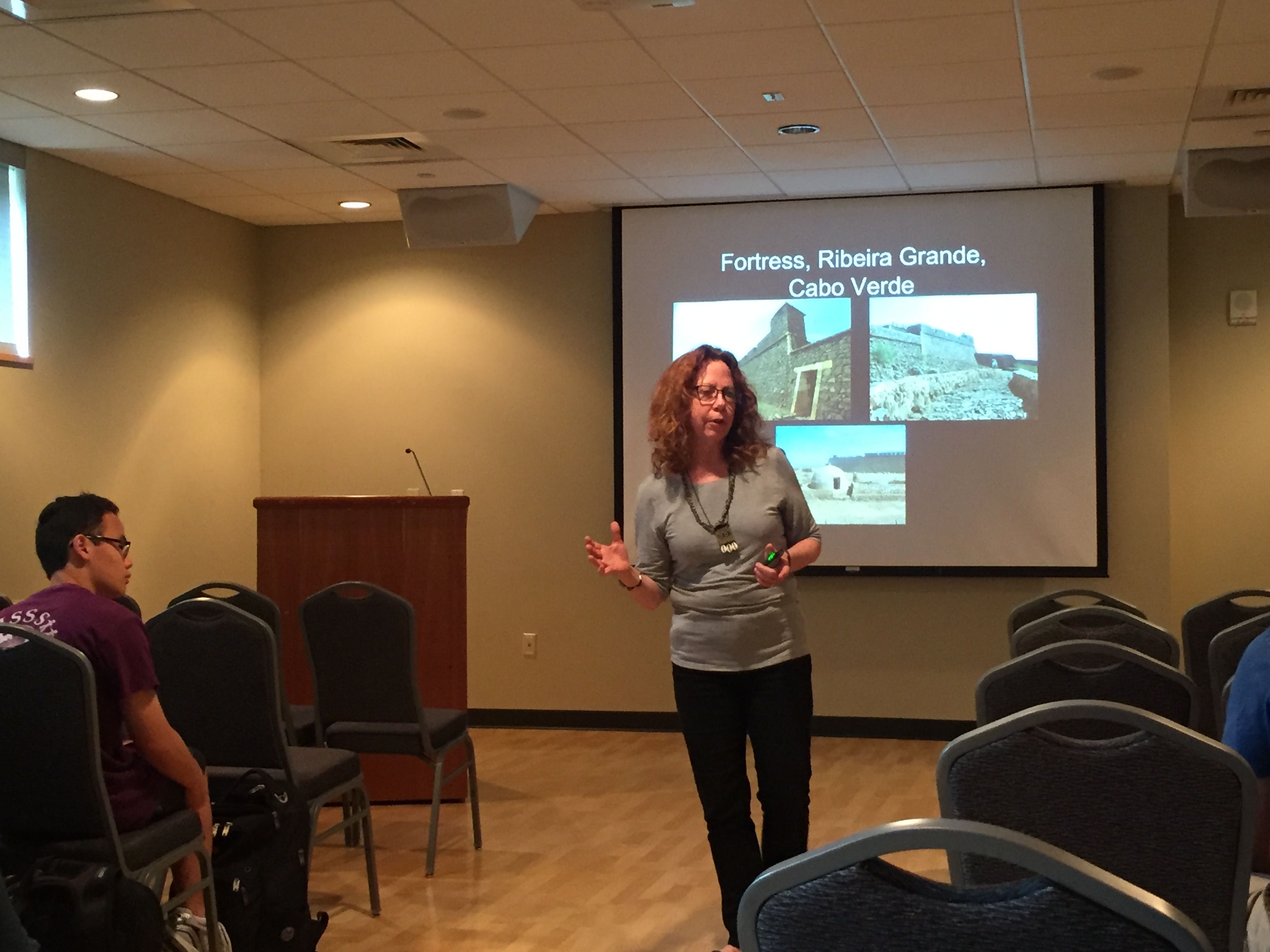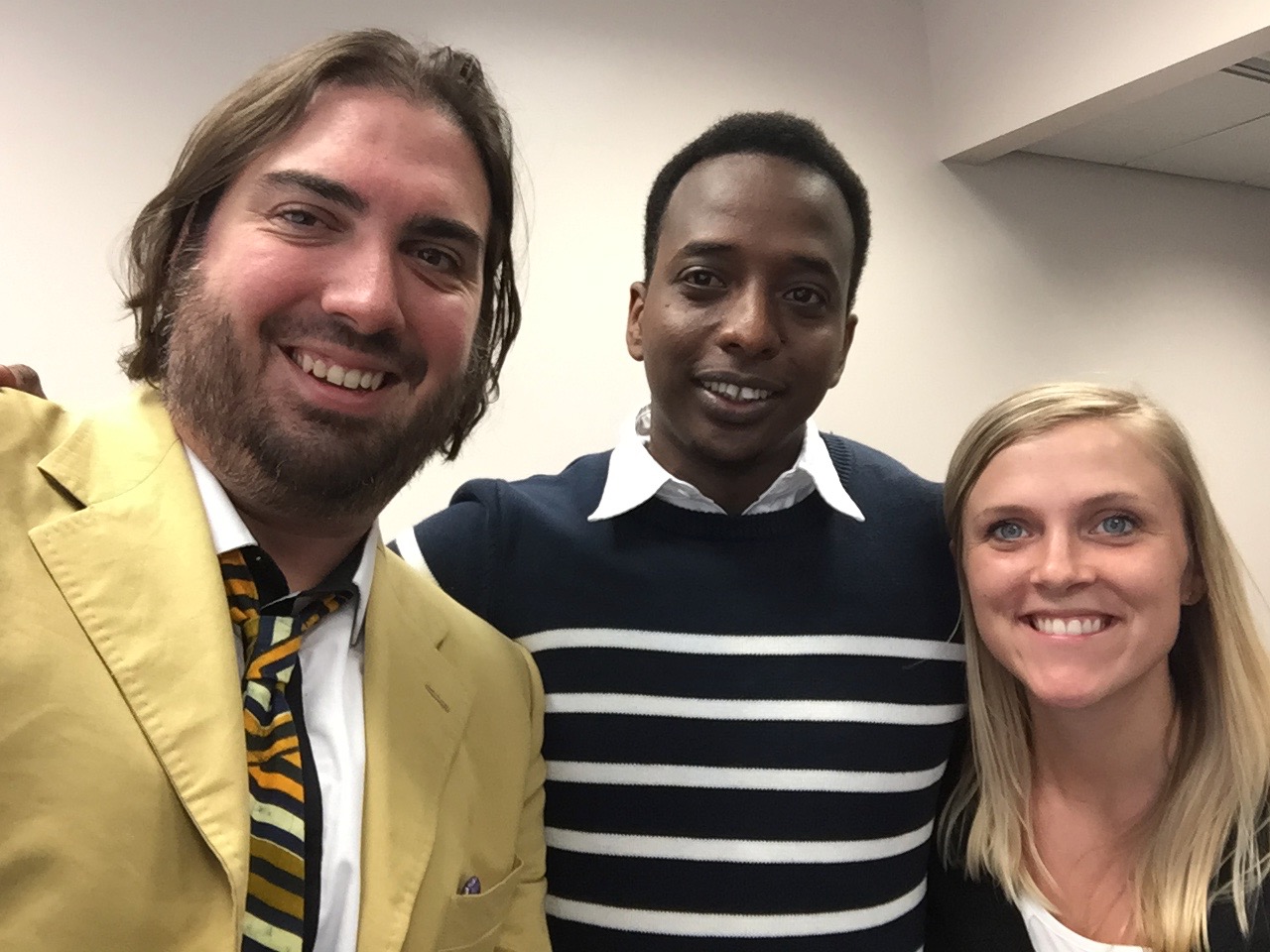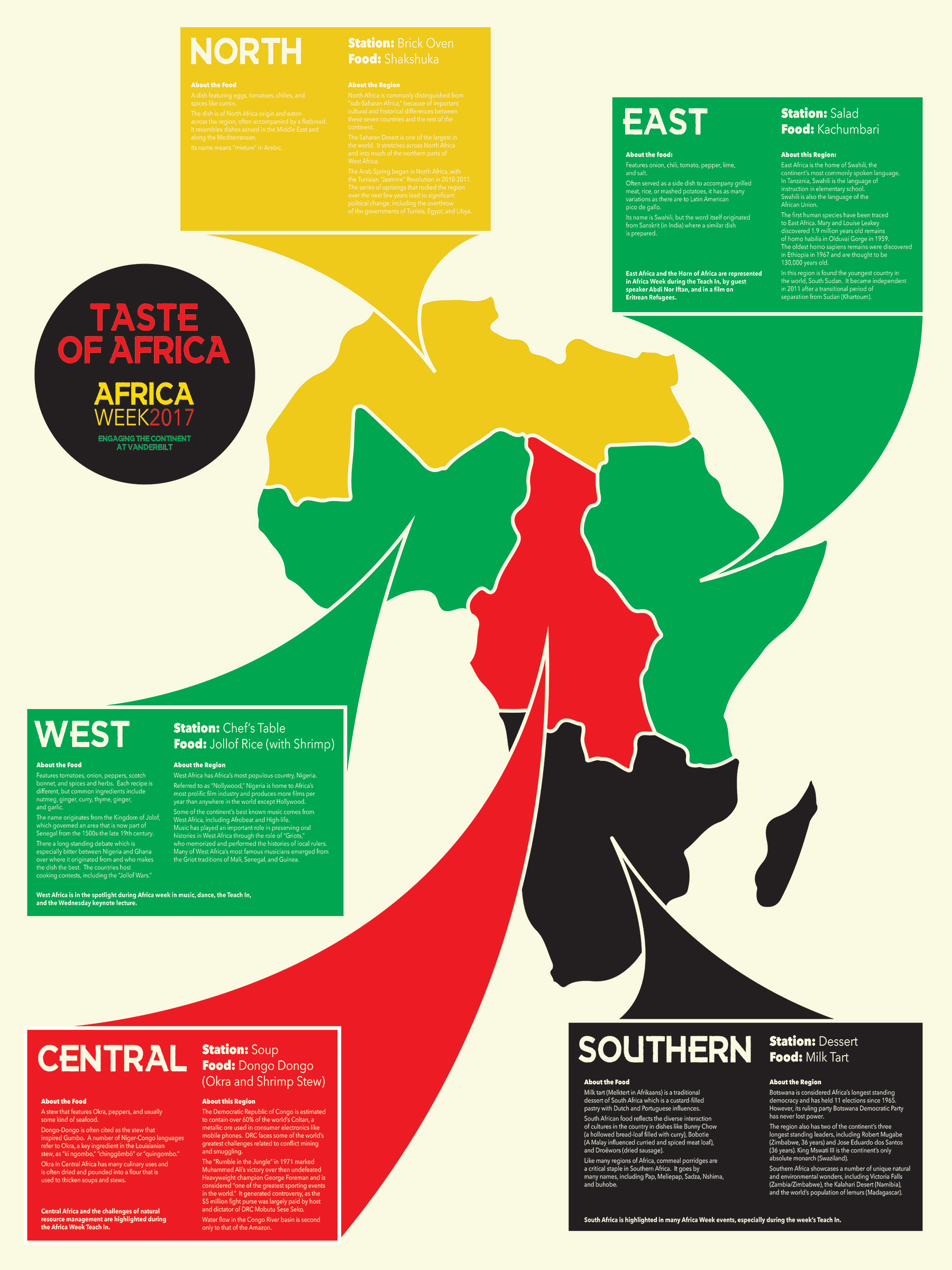Home » News » Reflecting on Vanderbilt’s First-Ever Africa Week
Reflecting on Vanderbilt’s First-Ever Africa Week
Posted by anderc8 on Thursday, May 4, 2017 in News, TIPs 2016.
Written by Keith Weghorst, Assistant Professor of Political Science
“Elimu ni kama bahari, haina kuta wala dari” – Knowledge is like an ocean, it has no walls and no roof.
Vanderbilt hosted its first-ever Africa Week on campus from April 2–7. During the six-day program, students, faculty, staff and the Nashville community experienced events ranging from music and dance performances to research seminars and lectures. As the week’s organizer, I enjoyed highlighting and building upon the Africa-related resources our campus offers, while further increasing our community’s interest in the continent. In this post, I reflect on Africa Week, the state of Africa at Vanderbilt and a few of the week’s most impactful events.
Why Africa: At Vanderbilt and in Nashville
To many, the reasons why Vanderbilt would host a week highlighting the prominence and importance of Africa may not seem obvious. We lack an institutional home for the study of Africa and we don’t offer African language instruction often necessary for on-the-ground engagement.
Yet, as the global profile of our institution has dramatically grown under the university’s International Strategy, so has the relevance of African Studies at Vanderbilt. Vanderbilt now features a community originating from or conducting research in the majority of countries found in the continent. Further, through funding provided by the Trans-Institutional Program Africa at a Crossroads, students and faculty will be conducting research in spring and summer 2017 in Tanzania, Uganda, Mali, Kenya, Nigeria, Malawi, South Africa, Mozambique, Senegal, Kenya, Cote d’Ivore and Ghana.

This map illustrates the countries in Africa (shaded in orange) where Vanderbilt’s community of faculty and students originate from or are working
Beyond our campus, there are important reasons to engage with Africa as well. Immigrants are a vital part of our city – as Nashville rapidly grows, so does its international diversity. More than 10 percent of Nashville residents were born abroad, according the Mayor’s Office of New Americans. Nashville’s African community includes residents originating from Ethiopia, Eritrea, Ghana, Kenya, Nigeria, Rwanda, Somalia, Somaliland, Sudan, South Sudan and many others. In a political age where paths to the U.S. from several of these countries are being closed, connecting with this part of Nashville is essential.
Capturing Africa at a Crossroads
Africa Week was made possible by our Africa at a Crossroads program, a two-year project that has connected scholars from across Vanderbilt in research and teaching collaboration. Under the leadership of Gregory Barz and Dianna Bell, we hosted dozens of African and Africanist academics and artists at the university and our faculty produced globally engaged scholarship during the 2016-17 academic year. Moses Ochonu and I will direct the program next year – 2017-18 will feature many of the same programs from our first year, including a second Africa Week, a speaker series and research immersion for undergraduate students. We also will establish a student-faculty collaborative research fellowship, offer an Introduction to African Studies course, host an end-of-year research conference and hold bimonthly fireside chats along with two speaker symposia. While the study of Africa at Vanderbilt may be at a crossroads, we are confident that the direction is forward.
The Week in Review
Africa Week exposed students to Africa-related resources on campus and generated excitement about the politics, music, food, culture and history of the continent. More than 250 students attended at least one of 18 different events, resulting in about 450 student “appearances.” Even more people saw music, dancing and drumming events, which were held in the Commons all week (trust me—staff were even dancing along to the music and prospective students and their parents stopped to watch Sory Diabate’s performance!). Students also tried cuisine from several African countries: The Commons dining hall prepared a special “Taste of Africa” menu for the week and they served up nearly 400 portions off dishes that included West African rice (Jollof), a Central African Stew (Dongo Dongo), a savory North African egg dish (Shakshuka), a South African pastry (Melktert) and an East African salad (Kachumbari).
Teach-In
One of the greatest parts of Africa Week was our Teach-In, where faculty opened their classrooms to the campus community to teach courses related to Africa. During the Teach-In, students explored topics such as public health in Africa, the politics of the resource curse, clientelism & elections, the transatlantic slave trade, South Africa’s post-apartheid democracy and the legacies of the Mandelas, and African education, music and art. With enrollment of nearly 230 students across the eight featured courses, the Teach-In had an additional 240 guests during the week. Attendees were excited to learn about classes they didn’t know the university offered and celebrated the opportunity to learn outside of their home departments.

History professor Jane Landers participated in the Teach-In.
Africa Week Keynote Lecture from Dr. John S. Schieffelin
In October 2014, Ebola was at its peak in West Africa and had arrived in the United States. Dr. John Schieffelin’s (Tulane University) keynote lecture highlighted path-breaking work in combatting the outbreak, which ultimately killed over 11,000 people in West Africa. He discussed experiences with more than 100 impacted patients admitted to a hospital in Sierra Leone and studying and treating the disease. The research of him and his colleagues was critical in abating the outbreak and limiting its impact. Their solutions resonated with the interdisciplinary nature of how we approach Africa at Vanderbilt: many strategies for public health outbreaks lie not just in medical solutions, but in addressing community social norms and the political stigmas against government institutions like public health clinics.
Abdi Nor Iftan Roundtable Discussion
We hosted Abdi Nor Iftan, a Somali who came to the United States via Kenya. His story—documented on NPR’s “This American Life” — details a journey of escaping Al Shabaab in Somalia only be accused and persecuted by the Kenyan government over the very terrorist violence he fled. Now a resident of Portland, Maine, as a recipient of a Diversity Immigrant Visa (the so called “Green card lottery”) he showed the audience a truly human face of contemporary U.S. immigration policy. Seeing the level of interest and enthusiasm on students’ faces during Abdi’s talk and knowing the way in which his roundtable changed how they viewed the world was incredibly rewarding. The roundtable tied together domestic and global politics, and observations of rural Maine from the eyes of someone who has yearned to come to the United States since childhood.

Political Science assistant professor Keith Weghorst (left) poses for a photo with Abdi Nor Iftan (center) and Political Science PhD student Nicole Audette
I encourage you to join the conversation by leaving comments or asking questions in the space provided below. Subsequent blog posts from students who participated in and attended Africa Week events will provide additional insight into their experiences.

